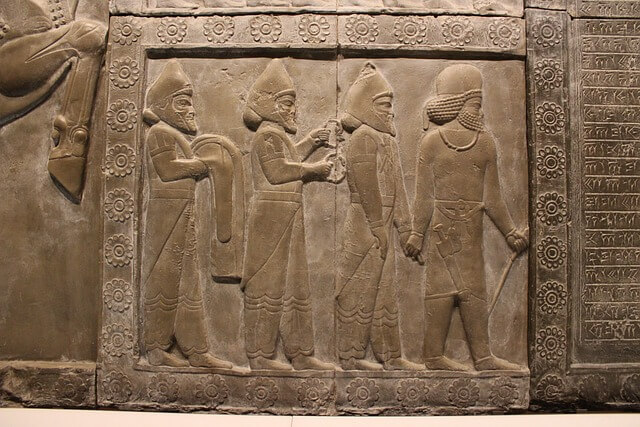Did you know that in the early 1900’s North Korea was such a strong place for the Christian faith that it was called “the Jerusalem of the East.”. Or that in the 1970’s in places like Iran and Afghanistan women were mini-skirts, walked around freely without burqas and were highly fashionable? Nations can change. Very, very quickly.
But what does a nation look after national repentance? Around 100-200 years later? That’s the real test of repentance. Will a nation change in the long run?
It’s like when I was speaking with a Nigerian friend of mine. I said to him, “Jackson, you are such a good father.”. And from my vantage point he was. He doted on his flock of children, invested in them, loved them and made them feel special and important.
But he answered in a way that was memorable to me. He said, “we really won’t know if that is true until 25 years from now.”
Wow. What wise words! Anyone can be a good spouse, parent, friend or worker but who are we 25 years down the road? Who are we as a nation 100-200 years down the path?
Nineveh to whom this missive was written was the capitol city of Assyria. Assyria was known for its war and torture to the point that God himself had to deal with their brutality.
Sometime between 786-746 BC Jonah likely delivered his scathing message to the Ninevites to repent or die. (We know the time as Jonah is mentioned in 2 Kgs 14:25). As we know, the Ninevites repented, God had mercy on them, and Jonah was furious.
But now Nahum was to prophesy against Nineveh again. We can know the date of Nahum because in Nahum 3:8 it mentions how the Assyrians defeated the Egyptians in the city of Thebes which we know happened in 663 BC. We also know that Assyria was utterly destroyed somewhere between 612 – 615 BC. So basically this is approximately 150 years after their repentance. And where were they?
Back to their evil ways.
This time enough was enough was enough. God had poured out, lavishing great mercy on them when they had repented before. But now they were back to their evil ways. And it was enough. God was going to pour out his wrath.
Nahum 1:2-6 is the picture of the LORD that people don’t like. He talks about the righteous and just side of him that will destroy his enemies. At the same time we also see the goodness of the LORD v. 7 as that also is nature. One that triumphs over evil.
But the end had come for Assyria. Their evil had been too much. The LORD says this of them:
“But with an overwhelming flood he will make an end of Nineveh, he will pursue his foes into darkness” (v. 8).
Which is very interesting. Because this is exactly how the Assyrians were destroyed.
The Assyrians had been the most powerful, advanced and greatest empire of the Mesopotamian kingdom. But their power started to show some cracks and like has been done throughout history, their enemies pounced. Waves of enemies came against them reducing their power.
Then somehow whether intentional through Cyaxerxes or unintentionally, the Tigris river flooded the city. It allowed the enemy soldiers to further penetrate the city and Assyria was destroyed, never to rise again.
The Egyptians, who had been allied to Assyria, tried to help. But they were ineffective. This fulfilled the Scripture spoken about them:
“Although they [the Assyrians] have allies and are numerous, they will be cut off and pass away” (v. 12).
And for Judah? They would return to the land.
“Look, they’re on the mountains, the feet of one who brings good news, who proclaims peace!” (v. 15).
When there was victory, runners would come and deliver the news to the leaders and the people. This expression of “the feet of one who brings good news” is one of the runners coming. It was exciting to see them because it meant good. (Those who brought bad news were often killed which is why they didn’t tend to run to the leaders of the people).
The runners meant victory. Peace. And a new way of being.
This was the news for Judah. And the peace that would ultimately be proclaimed in Christ.
Then this:
“No more will the wicked invade you; they will be completely destroyed” (v. 15).
We were going along so well and then that verse. We know that in AD 70 Jerusalem was destroyed yet again by the “wicked” Romans who invaded them. So what did this mean?
We have to look at this in context. This verse is about the Assyrians who terrorized the world and boasted in their brutality. Look at what the Lord says:
“he will put an end of Nineveh” (v. 8)
“You will have no descendants to bear your name” (v. 14)
“I will prepare your grave for you are vile”
Verse 15 is about the Assyrians. They will never again invade Israel as they will be wiped away from history which is exactly what happened. They were completely destroyed.
The lesson? Anyone one person and anyone community and any one nation can repent. But who are you later on?
Assyria did repent. But then they slid right back into their old ways. Not on their struggle to maintain righteousness, because everyone slips and falls on that journey. But in that they intentionally and persistently rebelled against the Lord (v. 11).
We should take heed. The LORD will deal with nations that persist in wickedness. It’s not a game. He gives grace and time for repentance. But there comes a point he will act.

